Organizations increasingly face many disruptions, from the personal crises of losing a colleague to widespread natural disasters, civil unrest, and global pandemicslike COVID-19. These disruptions challenge operational continuity and deeply impact employees’ mental and emotional wellbeing. Addressing the aftermath and preparing proactively for such events is crucial.
Yet, many organizations find themselves grappling with a lack of preparedness, particularly regarding mental health support and disruption response and recovery.
R3’s approach to disruptive event management meets these challenges head-on, offering a comprehensive, modern solution tailored to the needs of workplaces today. R3 emphasizes a reactive and proactive strategy to ensure businesses can respond to crises and build resilience against future disruptions.
“If Covid taught us anything, it’s not a question of will a crisis happen. It’s when is it going on to happen, how long is it going to last, and how many other crises are going to happen right along with it?” – Jeff Gorter – Vice President of Crisis Response Clinical Services
Many organizations lack a comprehensive disruption response and recovery plan that includes mental health support, leaving them ill-prepared when trauma occurs. R3 addresses this gap by integrating trauma-informed leadership training, employee wellbeing programs, and business continuity planning into its suite of services. This holistic approach ensures organizations can navigate workplace trauma with sensitivity and expertise and foster psychological safety and organizational resilience.
Recognizing the Changing Workplace Landscape
The workplace landscape is rapidly changing, especially following disruptive events like the COVID-19 pandemic. This global crisis, among others, has tested organizational resilience and reshaped what employees expect from workplace support systems.
Impact of Disruptive Events on Today’s Workforce:
Disruptive events reshape the workplace, compelling organizations to rethink how they support their employees. As a prime example, the pandemic highlights the need for mental health resources and flexible work arrangements, directly tying organizational resilience to workforce wellbeing and preventing burnout.
Evolution of Employee Expectations:
Employees now demand workplaces prioritize mental health issues and offer support systems, making these factors key to attracting and retaining top talent. Beyond salary and benefits, employees seek employers who provide support through critical incidents and disruptions.
Increasing Demand for Mental Health Resources and Support:
Following work-related traumatic experiences, the call for mental health resources grows louder. Employees expect:
- Immediate access to mental health professionals
- Leadership informed by trauma and supportive practices
- Ongoing communication about mental health initiatives
R3 responds to these evolving needs with strategies that ensure organizations can handle disruptions immediately afterward and support their employees’ long-term wellbeing. Through customized disruptive event management and critical incident strategies, R3 enables organizations to meet today’s workforce’s changing expectations, ensuring resilience, support, and attractiveness to current and prospective employees.
Varying Personal and Generational Responses to Trauma and Support: Addressing the Varied Needs of a Diverse Workforce
Navigating trauma in the workplace requires understanding the diverse ways employees experience and respond to it, shaped significantly by generational and cultural backgrounds.
Generational Views on Corporate Responsibility:
Different generations have distinct expectations regarding how organizations should handle trauma. Older generations might value stoicism and privacy, while younger employees may seek open dialogue and comprehensive support systems. Recognizing and bridging these differences is crucial for effective trauma response.
Cultural Sensitivity in Trauma Response:
Cultural backgrounds profoundly affect trauma processing and the types of support sought. For example, after the Virginia Tech shooting, the community’s use of the school’s fight song as a rallying cry demonstrated the power of culturally resonant symbols in healing. Similarly, recognizing principles like “Ohana” in Hawaii, which emphasizes family and community, can guide more culturally sensitive support efforts.
“If we frame it in a way that recognizes, acknowledges, and is sensitive to the cultural expectation around them, we’re much more likely to be successful.” – Jeff Gorter – Vice President of Crisis Response Clinical Services
Cultural Barriers to Open Communication:
A work culture that does not promote vulnerability can hinder employees from seeking necessary help, making trauma worse. Building an environment that encourages sharing and support can break down these barriers, fostering healing and productivity.
Varied Employee Needs and Expectations:
Meeting the diverse needs of a multifaceted workforce is a complex challenge. Tailoring support to accommodate various demographics, roles, and personal experiences ensures that all employees feel valued and supported.
R3 understands these nuances and champions a trauma-informed approach that respects generational and cultural differences. By advocating for open communication, offering varied support mechanisms, and adapting to the unique needs of each workplace, R3 helps organizations foster a resilient, supportive environment conducive to healing and growth.
The Psychological Underpinnings of Workplace Trauma
Grasping the psychological foundations of workplace trauma illuminates why tailored, compassionate responses are vital. Traumatic events—from personal losses to large-scale crises—profoundly affect employees’ mental and emotional states, influencing their performance, engagement, and overall wellbeing.
Understanding Trauma’s Impact:
Trauma can leave employees feeling overwhelmed, anxious, or detached, impacting their ability to concentrate, make decisions, and interact with colleagues. The psychological safety of the workplace becomes crucial in these moments. A supportive response from the organization helps mitigate these effects, fostering a sense of security and belonging.
Spectrum of Trauma Responses:
Employees’ reactions to traumatic events vary widely. While some may experience acute stress or anxiety, others might cope through withdrawal or disengagement. These responses can often go unnoticed, especially if the workplace culture doesn’t encourage open dialogue about mental health.
Recognizing this spectrum is essential to provide the proper support. Businesses address employees’ emotional and psychological needs by offering immediate crisis intervention and long-term counseling services.
“Typically, people will experience a reaction, a response to something unexpected. A disruptive event is any event that has the emotional power to temporarily overwhelm an individual or a group’s ability to cope. So, it temporarily overwhelms them. And so it could be, again, the shock, the surprise, the sadness, anger, confusion, anxiety, a desire to want to blame. I mean, that certainly typifies. Somebody’s got to be responsible. And again, if an employer doesn’t offer a compassionate response, that puts the bullseye on them as who am I going to blame for this?” – Jeff Gorter – Vice President of Crisis Response Clinical Services
R3 specializes in these complexities, implementing strategies that respect each individual’s experience and promoting healing within the organizational structure. This approach ensures no employee’s struggle remains unseen, enhancing the collective resilience of the workplace.
The Role of Accessibility and Open Communication
Creating an environment that champions accessibility and open communication is a cornerstone for modern organizations, particularly in the face of workplace trauma. This approach supports individual healing and fortifies the team’s collective resilience. By fostering a culture where employees are encouraged to share their experiences, organizations can transform potential disruptions into opportunities for growth and unity.
Encouraging Openness in the Workplace:
Openness is the foundation for trust and safety in a professional setting. When employees feel secure in sharing their feelings and experiences, it opens the door to genuine support and understanding. Transparent leadership starts with leading by example, showing vulnerability, and actively listening to encourage a culture of openness.
Implementing Systems for Accessibility:
Accessibility to support services is pivotal. Systems that enable employees to easily reach out for help can make a significant difference in the timely management and mitigation of trauma’s impact. Here are several strategies to enhance accessibility:
- Offer apps or online resources that provide self-help tools and direct access to professional support through digital platforms for mental health.
- Ensure employees have multiple channels to seek help, whether in person or through telehealth, with on-site and virtual counseling services.
- Strengthen Employee Assistance Programs (EAPs) with additional trauma and crisis management resources.
- Equip managers and leaders with the skills to identify signs of distress and to offer immediate support or referrals to professional help through targeted training.
Ensuring Equitable Access to Support:
Accessible support remains a critical challenge, as employees in remote locations or non-office roles may find it harder to reach out for help. A proactive approach bridges this gap:
- Deploy mobile response units to offer on-site support in geographically widespread locations, filling the gaps where digital or telehealth options may not be accessible.
- Conduct awareness campaigns to inform all employees about available support services, regardless of their role or location.
- Create tailored support plans that account for the unique demographics and roles within the organization, acknowledging that one approach does not fit all in trauma responses.
“There’s a difference between received support and perceived support. Received support is, as you might guess, the support offered, and somebody takes advantage of it. They say, great, this was here. I talked with the counselor, and this was very helpful. They can see tangible gains from that. But interestingly enough, research also indicates that perceived support is being offered. Still, they chose not to take advantage of it as an equal. In some cases, an even greater impact than taking advantage of the received support.” – Jeff Gorter – Vice President of Crisis Response Clinical Services
Compliance and Confidentiality:
The legalities around trauma response and mental health support are complex. R3 brings expertise in ensuring that organizations’ trauma response strategies are effective and fully compliant with laws like the Americans with Disabilities Act (ADA). This includes maintaining strict confidentiality and privacy protocols, which are crucial for building trust among employees seeking support.
No business owner wants to be on the witness stand and have the judge say, okay, well, I get it, the bad thing happened. What did you do afterward? Well, nothing. I told them to get back to work. That’s not a very defensible position.” – Jeff Gorter
R3’s comprehensive approach to accessibility and open communication in workplace trauma support ensures all employees feel seen, heard, and valued. This commitment to fostering a supportive and empathetic workplace culture is not just about overcoming the immediate challenges of trauma but about building a resilient and thriving organizational community.
Leadership: The Pillar of Recovery and Resilience
Leadership serves as the heart and soul of an organization, especially in times of crisis. The role of leaders in navigating workplace trauma is pivotal—they rally the team, foster resilience, and guide the organization through recovery with empathy and strategic insight.
Leadership’s Role in Healing:
Effective leadership in the aftermath of workplace trauma involves more than just managing the logistical aspects of the crisis. It requires demonstrating genuine concern and compassion, acknowledging the event’s impact on each team member, and creating a supportive environment that encourages healing. Leaders who openly communicate, show vulnerability, and share coping strategies can significantly influence the team’s overall resilience and recovery.
“To enter a crisis is to be touched by it. There’s nobody who can go in. Even first responders know this well. You don’t enter into it and skip away untouched, unscathed.” – Jeff Gorter – Vice President of Crisis Response Clinical Services
Training Leaders:
Developing the necessary emotional intelligence and skills to manage workplace trauma isn’t innate—it requires deliberate effort and resources. R3 emphasizes the importance of training leaders in trauma-informed leadership, which includes understanding the nuances of trauma, recognizing signs of distress among team members, and knowing how to initiate supportive conversations. Such training ensures leaders can support others and manage their wellbeing, balancing empathy and professional boundaries.
Case Studies: Leadership Initiatives That Made a Difference:
In the aftermath of disruptive events, leadership becomes a beacon of healing, resilience, and unity. The following insights illustrate how leadership initiatives make a tangible difference in navigating the challenges of workplace trauma.
Case Study 1
One of the most compelling examples of leadership in action comes from the response to unexpected events that shake the very foundation of a workplace. Jeff Gorter’s reflection on a crisis highlights the importance of collective action and support, “Whether it’s a small event or a large event, that a work group says, listen, guys, we can get through this. We’re going to be able to do this. We can manage it. I know we’re all hurting following the death of Bob. As I talk about an unexpected thing, Bob would have wanted us to pull together to keep our eyes on the mission and remember why we all work here and why it’s important. And that kind of rallying occurs anytime a workgroup is impacted, whether it’s a large scale.” This statement highlights how leadership can guide a team through grief and uncertainty, emphasizing the power of unity and shared purpose.
Case Study 2
Understanding and tapping into the inherent human capacity for resilience is another critical aspect of leadership during and after a crisis. Jeff Gorter shares an inspiring observation: “It’s a strength-based, resilience-based perspective. I know these awful things happen, but I’ve also been just incredibly, profoundly moved by the human capacity to rise to it and to rise above it.” This quote reminds us of leaders’ role in recognizing and nurturing the resilience within their teams, fostering an environment where employees feel supported and empowered to overcome challenges.
Balancing Business Continuity with Employee Support:
One of the most significant challenges leaders face is balancing the need to maintain business operations with providing adequate employee support. It requires transparency about the business’s needs while being flexible and understanding individual recovery processes. Successful leaders communicate clear plans for continuity and recovery, set realistic expectations, and adjust workloads and deadlines to accommodate the healing process.
Through targeted training, genuine empathy, and strategic planning, leaders can bring hope and resilience to their teams, guiding their organizations through adversity with strength and compassion. R3’s approach to leadership in the face of workplace trauma emphasizes being prepared, sensitive, and courageous to lead by example. Recovery is about returning to work and emerging stronger and more united.
Integrating Support Resources into the Organizational Framework
After a disruptive event, seamlessly integrating support resources into an organization fosters resilience and recovery. Here’s how organizations can adopt this approach effectively:
Establishment of Drop-In Centers and Supportive Resources:
- Drop-in centers provide a physical space where employees can find immediate support.
- These centers offer ongoing counseling and resources, helping employees navigate their recovery over time.
“What are some benefits of providing these services? Among them is a very visible public relations benefit because you can point to the counselors being able to set up a drop-in center and say, we have counselors on hand who are ready to help you, even if you’re not an employee. This is just for the general population. We’ve manned drop-in centers for communities multiple times. Again, I hope this isn’t seen as disparaging or having a secondary motive, but the business must be seen as doing something to care for the community. We get it. We understand we did something to help you, and we’ve provided a drop-in center with emotional support as a reflection of that.” – Jeff Gorter – Vice President of Crisis Response Clinical Services
Comprehensive Crisis Management Planning:
- R3 aids organizations in crafting and implementing crisis management plans that prioritize mental health, ensuring a proactive rather than reactive approach to workplace trauma.
- With R3’s expertise, these plans include detailed actions for immediate response and long-term recovery tailored to the organization’s unique needs.
By embedding these resources and strategies into their operational framework, organizations enhance their capacity to respond effectively to crises and demonstrate a deep commitment to their employees’ psychological safety and recovery.
R3’s Approach to Disruptive Event Management
Tailored Solutions for Comprehensive Support:
In our journey to redefine how organizations approach disruptive event management, R3 is committed to providing tailored solutions designed for comprehensive support. Our method is not a one-size-fits-all; it’s a holistic approach that encompasses both pre-event planning and post-event recovery.
Our expertise in mental wellness and behavioral health solutions positions us as thought leaders. This depth of knowledge enables us to craft strategies that address the complex needs of today’s workforce, considering the varying responses to trauma and the necessity for a supportive environment that fosters resilience and recovery.
Choosing R3 means partnering with a team dedicated to improving how your organization responds to workplace trauma. The advantages of partnering with R3 include:
- From initial planning to recovery, our comprehensive services are designed to support your organization at every stage.
- Leverage our knowledge and experience to provide the best possible support for your team.
- Our approach is customized to meet your organization’s unique needs and challenges.
We also recognize the risk of stigmatization as a significant barrier to effective trauma response. Efforts to address mental health in the workplace must ensure employees feel safe and supported. By implementing our strategies ahead of time, R3 helps organizations navigate these challenges, avoiding common pitfalls and enhancing overall team resilience.
By focusing on proactive preparation and employing a nuanced understanding of the complexities of workplace trauma, R3 offers a distinct advantage for organizations seeking to emerge stronger and more cohesive after a disruptive event.
Building a Resilient Organization:
R3’s mission is to foster organizational resilience, and ensure businesses are prepared for disruptions and will thrive in the aftermath. Building resilience starts with prevention and recovery to equip organizations with the strength to face future challenges head-on.
Strategies for Enhancing Organizational Resilience:
- Provide trauma-informed training to empower leadership with the skills to manage their teams empathetically and effectively during crises.
- Create detailed plans for mental health and wellbeing to ensure a comprehensive crisis response is in place.
- Encourage a culture of openness and support where employees feel safe to share their concerns and experiences.
Evaluating the effectiveness of trauma support involves measuring its impact on recovery and productivity. Methods include:
- Surveys and feedback mechanisms to collect data on employee wellbeing and satisfaction with the support services provided.
- Analyzing productivity metrics before and after implementing support programs to assess their effectiveness.
- Monitoring employee retention rates as an indicator of a supportive work environment.
Investing in employee mental health directly correlates with business continuity and productivity. Organizations prioritizing mental wellbeing report higher employee engagement, lower absenteeism, and better overall performance. The business case for such investment is clear: employees are more likely to be productive and committed to their organization when they feel supported.
Addressing secondary trauma among HR and support staff is crucial to building a resilient organization. These professionals often bear the emotional trauma of their roles, making it essential to provide them with the support and resources they need to manage this stress effectively. This includes access to mental health services, regular check-ins, and opportunities for professional development in trauma-informed care.
By implementing these strategies, organizations can create a foundation of resilience that benefits both employees and the broader business, ensuring a strong and caring response to future disruptions.
Navigating Forward: Empowering Organizations in the Wake of Workplace Trauma
A modern approach to addressing workplace trauma has never been more critical. Organizations must be prepared to respond immediately to challenges and fortify themselves to thrive in adversity.
R3 is dedicated to equipping organizations with the tools, knowledge, and support necessary to navigate the complexities of disruptive events. Our commitment is rooted in a deep understanding of the nuanced nature of workplace trauma, offering effective, compassionate, and tailored solutions to the diverse needs of today’s workforce.
Key Takeaways:
- Proactive planning and post-event recovery are essential for a resilient organization.
- R3’s expertise ensures organizations receive informed and empathetic support.
- Customized solutions cater to each organization’s unique challenges and needs.
- Prioritizing mental wellbeing is crucial for business continuity and productivity.
- Recognizing and addressing the needs of HR and support staff is key to sustaining organizational health.
As we look to the future, the role of empathetic, informed, and comprehensive support in the workplace cannot be overstated. R3 invites you to partner with us, leveraging our knowledge to enhance your organization’s capacity to support, recover, and thrive in the face of traumatic events. Together, we can build a foundation of resilience that addresses today’s challenges and prepares us for tomorrow’s uncertainties.
Ready to transform your approach to workplace trauma and build a more resilient organization? Connect with R3 today to explore how our Disruption Response and Recovery services can support your team through recovery and beyond.







